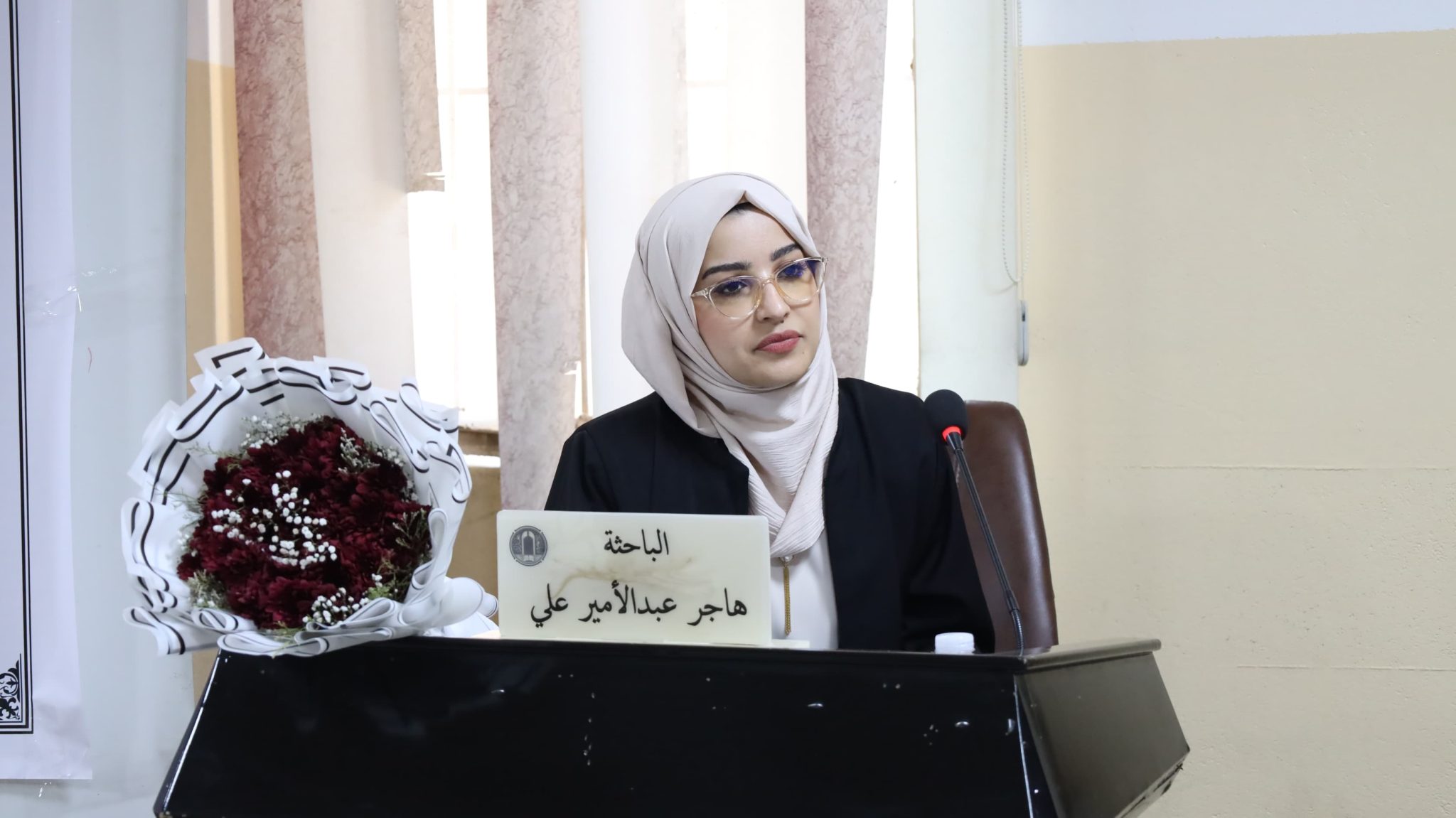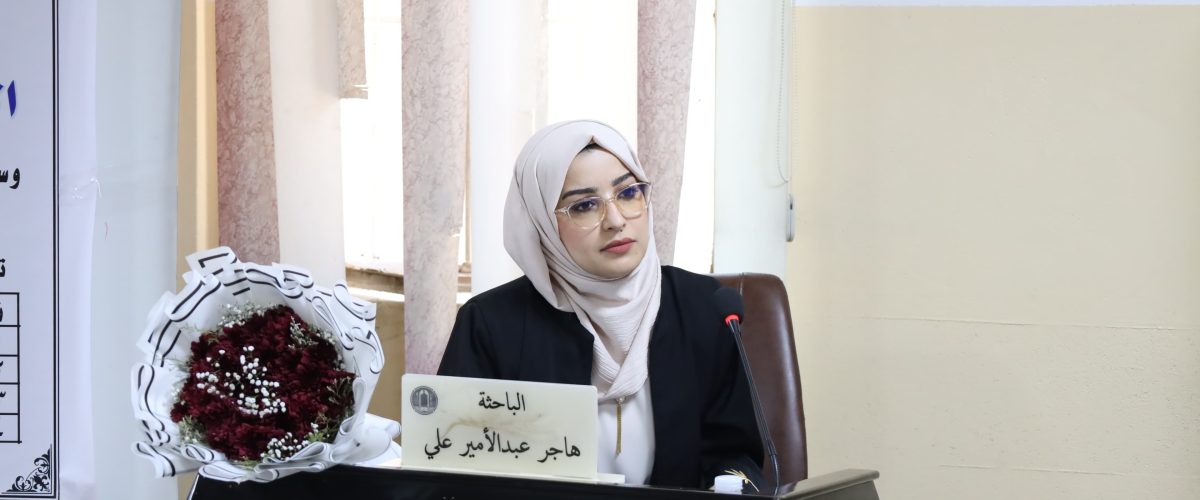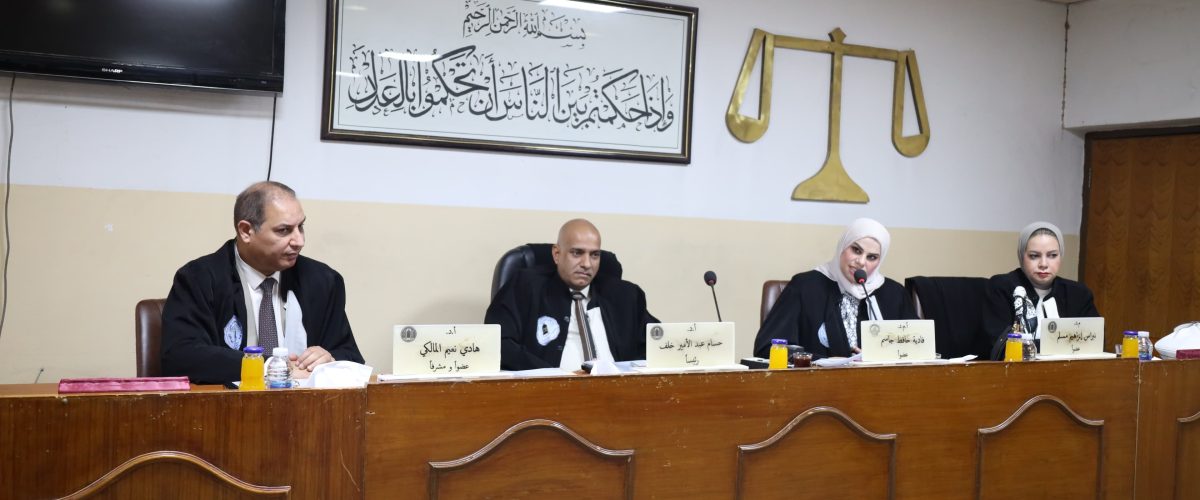The College of Law at the University of Baghdad discussed a master’s thesis in the international law of the student (Hajer Abdul Amir Ali), labeled (environmental asylum in international law), on Tuesday, 19/11/2024 on the model courtroom at the college. The discussion committee consisted of the lecturers: Dr. Hussam Abdul Amir Khalaf as president, Dr. Fadia Hafez Ibrahim member, Dr. Nibras Ibrahim Muslim member, and Dr. Hadi Naim Khalaf is a member and supervisor. The purpose of the thesis was to understand the dimensions of environmental asylum, its causes and effects at the International and local levels to highlight the most prominent challenges facing this category in international law in the absence of explicit legal recognition of international protection, as well as to know the most prominent legal frameworks and global or regional guidelines that seek to regulate this phenomenon and provide a comprehensive analysis of the most important proposed solutions to deal with it. The thesis included three chapters, the first of which dealt with the conceptual framework of environmental asylum, the second chapter dealt with the protection of environmental refugees in the framework of public international law, and the third chapter dealt with international cooperation to reduce environmental asylum and proposed solutions. The thesis came up with several recommendations, the most important of which are:
1– direct the efforts towards the drafting of a binding international convention, to protect refugees for environmental reasons, and work to guarantee their basic rights.
2– provide the necessary support to national adaptation plans in developing countries and include well-planned preventive measures to enable migration as an adaptation strategy when necessary.
3-the adoption of binding bilateral or regional agreements on environmental refugees that allow regulating migration in the regions most affected by the changing climate as a short-term solution.
4- make special efforts for the socio-cultural-economic reintegration of environmental refugees into the new communities in which they are resettled.



